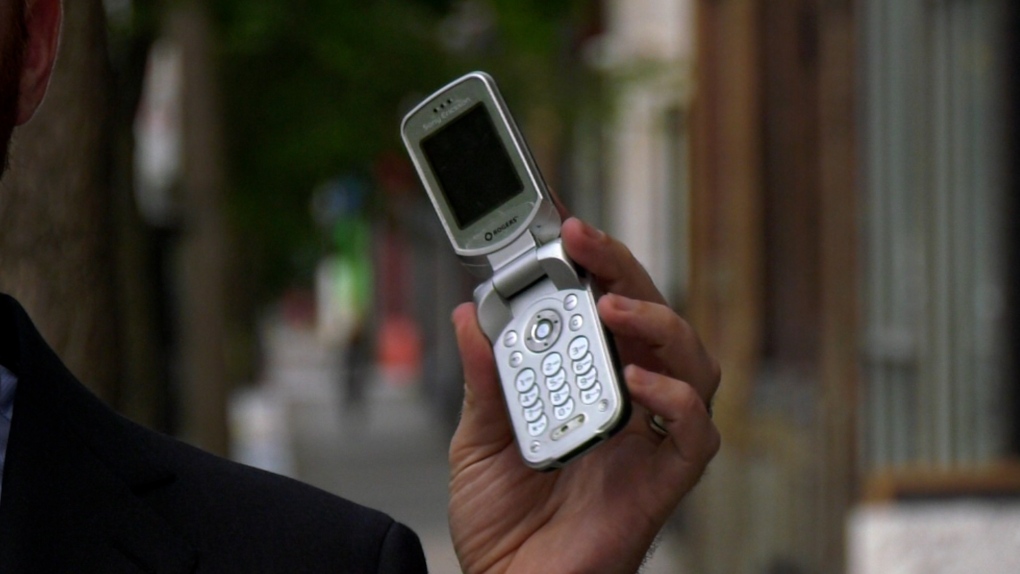
How will vaccine passport system work in Ontario for people without cellphones?
Advocates are cautioning a headlong rush into implementing a vaccine passport using only smartphone apps — warning it could leave the elderly, the poor or the homeless out in the cold.
Angie Peters of the Yonge St. Mission said designing a vaccine passport to work for disadvantaged people has to be as creative and motivated as the push to get those people vaccines was.
“They may have a cellphone but need to print it because technology is fleeting for them. They have a cellphone this month, but not next month,” she said.
And the solution of a printed out code may also not solve all the problems, Peters said.
“If they have a printer, they may not be able to afford the ink. There are people that we work with that lose their ID, they get rolled on the street regularly. If they’re keeping a printed card, it’s going to get lost and it’s going to have to get replaced, just like other ID on a regular basis,” she said.
It all could add up to a barrier that could result in properly vaccinated people denied entry for factors other than just vaccination, she said.
The Ontario government is expected to introduce some form of vaccine passport this week after calls from the medical community that checking vaccine status at the door could prevent the spread of COVID-19 inside any non-essential venues.
The business community has pushed for a vaccine passport, reasoning that it would lead to more business to be done if capacity limits could be raised safely.
But for those without cellphones, with older cellphones, or those who would have a more difficult time navigating the steps to prove that they are vaccinated, this could be a major headache, said David Lepofsky of the AODA Alliance.

If there’s any reason why someone with a disability couldn’t get the passport, they would need an alternative passport, he said, pointing to people for whom there could be medical exemptions from vaccination.
“We don’t want this to become a long-term thing that could be used against people when the health situation has changed so it should be very time-limited and circumstance-dependent,” he said.
In Manitoba, an immunization card alternative has proved so popular that the government ran out of plastic to print it on.
In Quebec and in B.C.’s planned card, printing the code onto paper is an option as the readers can read the QR codes just as well from paper as from a screen.
CTVNews.ca Top Stories

BREAKING Another suspect arrested in Toronto Pearson airport gold heist: police
Another suspect is in custody in connection with the gold heist at Toronto Pearson International Airport last year, police say.
BREAKING Justin and Hailey Bieber are expecting their first child together
Hailey and Justin Bieber are going to be parents. The couple announced the news on Thursday on Instagram, both sharing a video that showcases Hailey Bieber's growing belly.
From outer space? Sask. farmers baffled after discovering strange wreckage in field
A family of fifth generation farmers from Ituna, Sask. are trying to find answers after discovering several strange objects lying on their land.
Poilievre-led government 'would never' use notwithstanding clause on abortion, his office says
A Conservative government led by Pierre Poilievre would not legislate on, nor use the notwithstanding clause, on abortion, his office says, as anti-abortion protesters gather on Parliament Hill.
Ontario family receives massive hospital bill as part of LTC law, refuses to pay
A southwestern Ontario woman has received an $8,400 bill from a hospital in Windsor, Ont., after she refused to put her mother in a nursing home she hated -- and she says she has no intention of paying it.
Here are the ultraprocessed foods you most need to avoid, according to a 30-year study
Studies have shown that ultraprocessed foods can have a detrimental impact on health. But 30 years of research show they don’t all have the same impact.
Miss Teen USA steps down just days after Miss USA's resignation
Miss Teen USA resigned Wednesday, sending further shock waves through the pageant community just days after Miss USA said she would relinquish her crown.
BREAKING 1 dead in rollover crash in Sharbot Lake, Ont.; 5 others injured
Ontario Provincial Police confirm one person has died after a single-vehicle rollover crash in Sharbot Lake, Ont. that seriously injured five others.
Cyclist strikes child crossing the street to catch school bus in Montreal
A video circulating on social media of a young girl being hit by a bike has some calling for better safety and more caution when designing bike lanes in the city. The video shows a four-year-old girl crossing Jeanne-Mance Street in Montreal's Plateau neighbourhood to get on a school bus stopped on the opposite side of the street

































